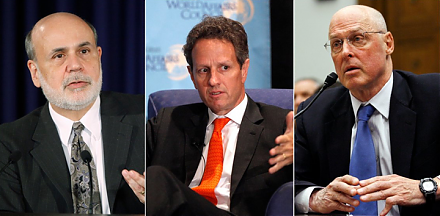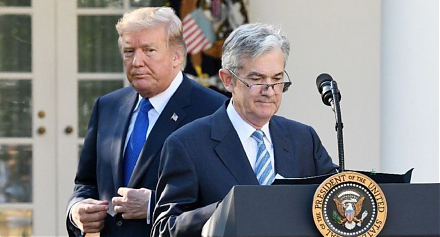

2018-08-17 11:45:00 Fri ET
stock market competition macrofinance stock return s&p 500 financial crisis financial deregulation bank oligarchy systemic risk asset market stabilization asset price fluctuations regulation capital financial stability dodd-frank
In accordance with the extant corporate disclosure rules and requirements, all U.S. public corporations have to report their balance sheets, income statements, and cash flow statements once per quarter. President Trump tweets that he now asks the U.S. Securities and Exchange Commission (SEC) to investigate the practical implications of switching to a semi-annual corporate disclosure cycle. Specifically, the Trump administration seeks an SEC study of semi-annual income statements instead of quarter-to-quarter financial reports for U.S. public corporations. Several CEOs such as JPMorgan Chase's Jamie Dimon and Berkshire Hathaway's Warren Buffett support this paradigm shift toward longer-term corporate investment focus rather than short-termism. When Wall Street stock analysts continue to fixate on quarter-to-quarter EPS and sales growth forecasts, U.S. public corporations may fail to deliver long-term gains in the form of better R&D innovation, technology, and greater financial inclusion.
However, some stock market investors and activists may balk at the likely opaque disclosure of U.S. corporate financial performance. The resultant deterioration in corporate transparency can induce U.S. public corporations to derail off the current path of consistent stakeholder communication. Indeed, both the Trump tweet and subsequent SEC investigation seem to resonate with Democrat Senator Elizabeth Warren's recent proposal or the Accountable Capitalism Act.
If any of our AYA Analytica financial health memos (FHM), blog posts, ebooks, newsletters, and notifications etc, or any other form of online content curation, involves potential copyright concerns, please feel free to contact us at service@ayafintech.network so that we can remove relevant content in response to any such request within a reasonable time frame.
2019-10-23 15:39:00 Wednesday ET

American CEOs of about 200 corporations issue a joint statement in support of stakeholder value maximization. The Business Roundtable offers this statement
2018-07-17 08:35:00 Tuesday ET

Henry Paulson and Timothy Geithner (former Treasury heads) and Ben Bernanke (former Fed chairman) warn that people seem to have forgotten the lessons of the
2023-03-28 11:30:00 Tuesday ET

The Federal Reserve System conducts monetary policy decisions, interest rate adjustments, and inter-bank payment operations. Peter Conti-Brown (2017)
2017-07-25 10:44:00 Tuesday ET

NerdWallet's new simulation suggests that a 25-year-old millennial who earns an inflation-free base salary of $40,456 and saves 15% each year faces a 99
2025-09-24 09:49:53 Wednesday ET

Stock Synopsis: With a new Python program, we use, adapt, apply, and leverage each of the mainstream Gemini Gen AI models to conduct this comprehensive fund
2018-09-03 09:31:00 Monday ET

Amazon follows Apple to become the second American public corporation to hit $1 trillion stock market valuation. Amazon's founder and chairman Jeff Bezo